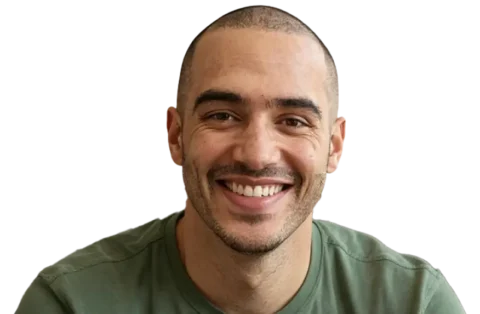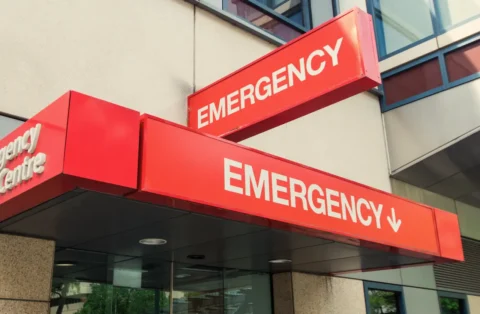What you’ll learn
We explain exactly who can prescribe Suboxone® and how to find the right provider for substance use disorders and opioid use disorder treatment. You’ll discover what qualifications matter, how recent changes have made addiction treatment more accessible, and why getting help is easier than you might think.
If you’re struggling with opioid addiction and considering Suboxone® treatment, you might be wondering: Who can actually prescribe Suboxone? Do I need to see a specialist? Will my regular doctor help me, or will they judge me?
These are completely normal concerns, and you’re not alone in feeling this way. Taking the step to seek information about treatment shows incredible strength, even if it doesn’t feel that way right now.
Here’s what you need to know upfront: more healthcare providers than ever can prescribe Suboxone for opioid use disorder, and the rules have gotten much simpler. You don’t need special referrals, and you don’t have to wait weeks for an appointment with an addiction medicine specialist.
And if you’re worried about judgment or shame, that’s completely understandable. But effective counseling and compassionate addiction treatment are available right now.
At QuickMD, we treat patients with opioid use disorder every day through our secure telemedicine platform. We’ve helped thousands of people start Suboxone treatment safely and discreetly, often with same-day appointments. Our providers understand that addiction is a medical condition, not a moral failing. In this article, we’ll explore the guidelines for prescribing Suboxone, who can prescribe it, and address any concerns or misconceptions about starting opioid addiction recovery.
Who can prescribe Suboxone? Doctors, nurse practitioners, and telemedicine providers
Getting Suboxone used to be much harder than it is today. The rules around who can prescribe it have changed significantly, opening up more options for people seeking treatment.
X-waiver eliminated: more doctors can now prescribe buprenorphine
Until early 2023, doctors needed special training and a waiver called an “X-waiver” to prescribe buprenorphine.
This waiver came from the Drug Addiction Treatment Act (DATA 2000) and required doctors to complete 8 hours of training (or 24 hours for nurse practitioners and physician assistants) plus maintain special registration with the DEA.
It also limited how many patients providers could treat at one time. This meant only a small number of doctors could actually help patients with Suboxone, creating long wait times and limited options for people who needed treatment.
Any doctor, nurse practitioner, or physician assistant who can prescribe controlled medications can also prescribe Suboxone, and there are no longer any patient limits.
This includes:
- Medical doctors across all specialties (primary care, emergency medicine, addiction medicine, internal medicine, family medicine)
- Nurse practitioners working in clinics, hospitals, and telemedicine platforms
- Physician assistants in various healthcare settings
Finding addiction medicine specialists
Addiction medicine specialists are physicians who have extra training in treating opioid use disorder and other addictions. Addiction specialists can be especially helpful if you’ve tried Suboxone before without success, have other substance use challenges, or deal with mental health conditions alongside your addiction. They often work closely with counselors and can prescribe other medications that might support your recovery.
Online Suboxone prescriptions: telemedicine options for OUD treatment
Telemedicine has made getting Suboxone much more convenient.
You can often get an appointment the same day you’re ready to start Suboxone treatment, receive care from home, and work with providers who specialize in addiction treatment.
This approach removes common barriers like taking time off work, finding transportation, or worrying about being seen at an addiction clinic. Many telemedicine providers focus specifically on addiction treatment, so they understand the urgency when someone is ready to get help.
QuickMD specializes in online addiction treatment and is the largest TeleMOUD provider in the U.S. Our providers focus on helping people with opioid use disorder, and we can often see patients the same day they’re ready to start treatment.
We serve patients in most states and understand that timing matters when someone is ready to begin recovery. Knowing who can prescribe Suboxone is helpful, but finding the right provider for your specific situation is what really matters.
How to find qualified Suboxone providers near you
Any provider who can prescribe Suboxone must have:
- A valid medical license in your state
- DEA registration to prescribe controlled substances
- Authorization to practice telemedicine (for online care)
Experience that matters
Look for providers who have specific training in addiction medicine or substance dependence, experience managing opioid use disorder and withdrawal symptoms, an understanding of how Suboxone interacts with other medications, and a commitment to evidence-based addiction treatment.
Warning signs to avoid
Avoid providers who promise fast fixes, don’t discuss counseling or other treatment programs, seem unfamiliar with Suboxone treatment protocols, or make you feel judged about your addiction.
Recovery from addiction is a marathon, not a sprint. Fast fixes don’t work here. But investing in a good provider (and yourself) goes a long way toward stability. Once you’ve found a provider who can prescribe controlled substances and you feel comfortable with, here’s what you can expect when you’re ready to begin treatment.
Starting Suboxone treatment & what to expect in your first appointment
Your provider will ask a few important questions to understand your situation and keep you safe during treatment.
- About your opioid use: What you’ve been taking, how much, and for how long. Be honest about everything. They need accurate information to help you.
- Timing and symptoms: When did you last use opioids? And what withdrawal symptoms are you experiencing? This helps them nail down the safest time to start Suboxone.
- Your medical background: List any other medications you’re taking, health conditions, and any previous addiction treatment attempts. If you’ve tried Suboxone before, share what worked or didn’t work.
- Your goals: What do you hope to achieve with treatment? Whether you want to stop using opioids completely or stabilize your life first, being upfront helps create the right plan.
Most providers understand that starting addiction treatment feels overwhelming and will take time to answer your questions without making you feel rushed. After your initial consultation, the next step is actually starting the medication, a process called induction that requires careful timing.
Suboxone induction
Starting Suboxone requires careful timing.
Most providers require you to be experiencing withdrawal before your first dose. This depends on the type of opioid, and it’s typically 12-24 hours or more since your last opioid use.
Taking Suboxone too early can trigger something called precipitated withdrawal, which makes you feel much worse instead of better with sudden, intense withdrawal symptoms. Your provider will help you determine the right time based on your symptoms.
Your provider will assess whether you’re ready, give you specific instructions about timing and dosing, and may prescribe other medications to help you feel more comfortable during the transition.
At QuickMD, we start with a 7-day supply to see how you respond and adjust your dose if needed. You’ll have follow-up appointments to make sure the medication is working well for you, so there’s always a trained professional in your corner.
Getting started is just the beginning. Successful Suboxone treatment is really about what happens in the weeks and months that follow.
Building ongoing treatment and support
Suboxone treatment works best when it’s part of an ongoing addiction treatment plan, not just a one-time prescription. Most people need regular check-ins with their provider to see how things are going and make adjustments along the way.
You can also benefit from counseling or therapy alongside your medication, as well as peer support groups, which provide a sense of community and understanding. This might help you work through some of the reasons addiction developed in the first place, or address other challenges like depression or anxiety that often come with addiction. Your Suboxone provider can help you find these services or coordinate with counselors you’re already seeing.
Suboxone treatment options: In-person vs. telemedicine
When it comes to ongoing care, you have a few options for how and where to receive your treatment. Each approach has its own advantages, and the best choice depends on your personal preferences, schedule, and specific needs.
Office-based treatment
Traditional providers offer Suboxone treatment in clinic settings, which includes in-person appointments for monitoring and often coordination with local treatment programs. Some patients prefer the structure and routine of regular office visits.
Integrated care models
Some practices combine addiction treatment with primary care and mental health services, addressing opioid use disorder alongside other health conditions. These integrated models can also treat mental health disorders like depression or anxiety that often occur with addiction.
Telemedicine treatment
Online Suboxone treatment offers immediate access without travel requirements, privacy and discretion, providers who specialize in addiction medicine, and flexible scheduling around work and family obligations.
At QuickMD, we specialize in telemedicine addiction treatment for opioid use disorder, offering appointments seven days a week with same-day availability. If you’re looking for flexible treatment options or want to learn more, we’re here to help.
Addressing common concerns about treatment with Suboxone
You might still have some questions or concerns about starting Suboxone. Let’s address the most common ones we hear from patients.
Fear of judgment
Fear of judgment is one of the biggest barriers that keeps people from seeking help.
Licensed providers understand that addiction is a medical condition requiring medical treatment. Your addiction doesn’t define you, and seeking treatment doesn’t make you weak. It makes you human.
At QuickMD, our providers work with patients struggling with opioid use disorder every day and provide compassionate, judgment-free care. The privacy of telemedicine also means you don’t have to worry about running into people you know or feeling exposed in a clinic waiting room.
Cost concerns
Cost is a real barrier to getting effective OUD treatment. Many people worry about expensive specialist fees, insurance copays that add up over time, or not having insurance coverage for substance use treatment at all. Treatment costs vary depending on your provider and location, and dealing with insurance approval can sometimes delay getting help when you need it most.
We offer transparent pricing at $99 per appointment, with your initial induction appointment that includes one follow-up visit when completed within 14 days. We don’t require insurance, which can eliminate any delays and complications that come with prior authorizations or coverage limitations. After your initial treatment, you’ll continue with monthly follow-up visits to monitor your progress.
Effectiveness of telemedicine addiction treatment
Research shows that telemedicine Suboxone treatment works just as well as in-person care, and sometimes even better. A recent study following over 23,000 people who started treatment found some encouraging results for patients who began their treatment online.
People who started Suboxone through telemedicine were more likely to stick with their treatment and keep taking their medication. They also had fewer overdoses, compared to people who started treatment in person.
The study found that 84% of telemedicine patients refilled their prescriptions, while 79% of in-person patients did.
When you don’t have to take time off work, find a ride, or worry about being seen at a treatment center, it’s much easier to keep your appointments. These results come from real patients during the pandemic, when telemedicine became more widely available. It turns out that when barriers are removed, people do better with their recovery.
Privacy and confidentiality
Addiction treatment is protected by strict confidentiality laws beyond standard medical privacy protections.
HIPAA compliance in telemedicine is essential, and reputable telemedicine platforms take this seriously.
At QuickMD, we follow all HIPAA regulations, which means we maintain security safeguards to protect your health information, limit access to authorized personnel only, and use electronic techniques to prevent unauthorized access to your records.
We never share your treatment details without your written consent. Your information stays between you and your care team: your provider and necessary administrative staff, like billing departments. That’s it. The technology we use is specifically designed to keep your health data private and secure, so you can focus on your recovery without worrying about who might find out about your treatment.
Remember, you didn’t choose to have an addiction, but you can choose to get help for it. Recovery is possible, and taking this first step to learn about your options is already moving you in the right direction.
For more helpful information about addiction treatment and recovery, visit our Learning Center, where we share expert insights and answer common questions from patients like you.
Frequently asked questions about who can prescribe Suboxone
What’s the difference between a Suboxone doctor and a regular doctor?
Any doctor with a DEA registration can prescribe Suboxone. There’s no special “Suboxone doctor” license. Some physicians have more experience treating addiction than others. Look for providers who regularly treat opioid use disorder or have additional training in addiction medicine.
How do I know if a telemedicine provider is licensed in my state?
Legitimate telemedicine providers will verify your location and ensure they’re licensed in your state before treating you. At QuickMD, we serve patients in most states and confirm licensing requirements during the booking process. You can also check your state’s medical board website to verify a provider’s license. You can also check the SAMHSA website’s Buprenorphine Treatment Locator.
What happens if my regular doctor won’t prescribe Suboxone?
If your regular doctor isn’t comfortable prescribing Suboxone, they should be able to refer you to someone who is. You can also search for addiction medicine specialists in your area or consider telemedicine options like our platform that specializes in opioid use disorder treatment.




